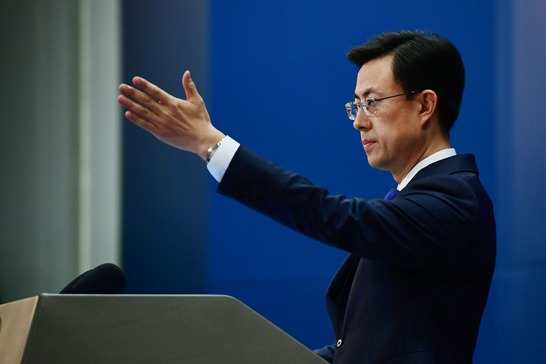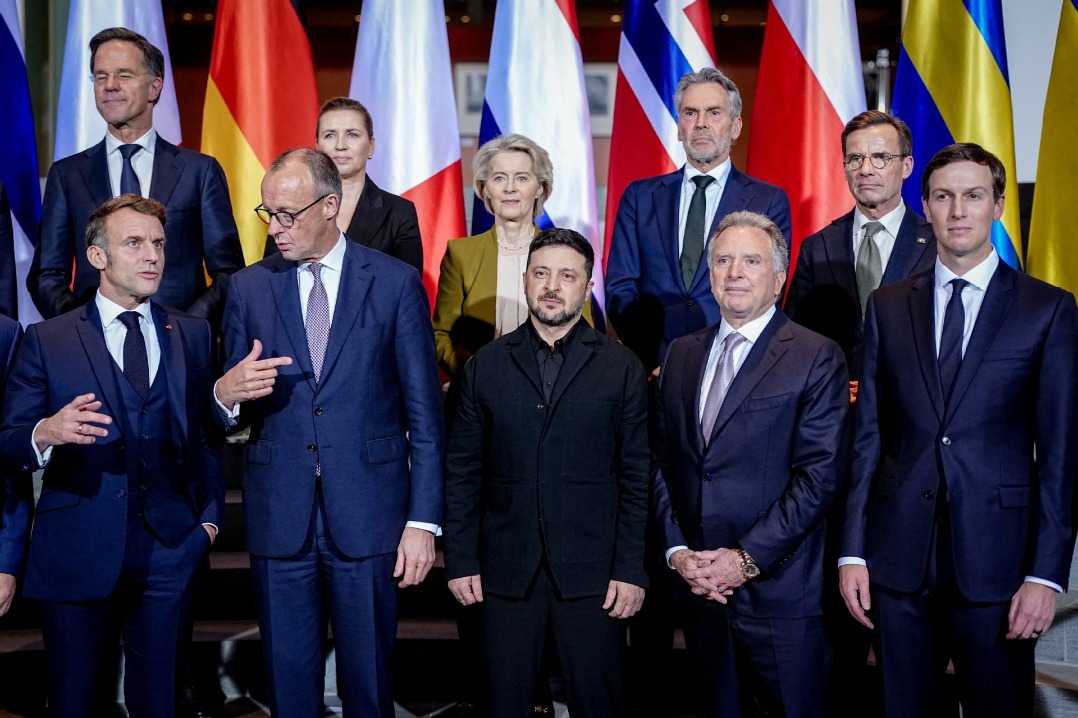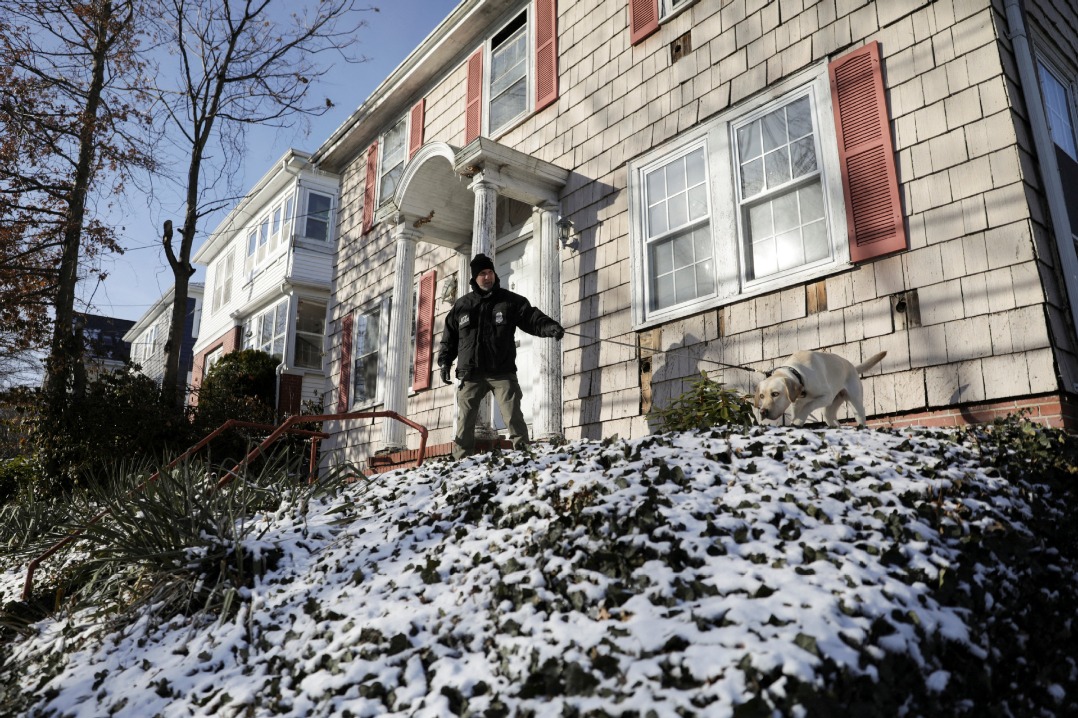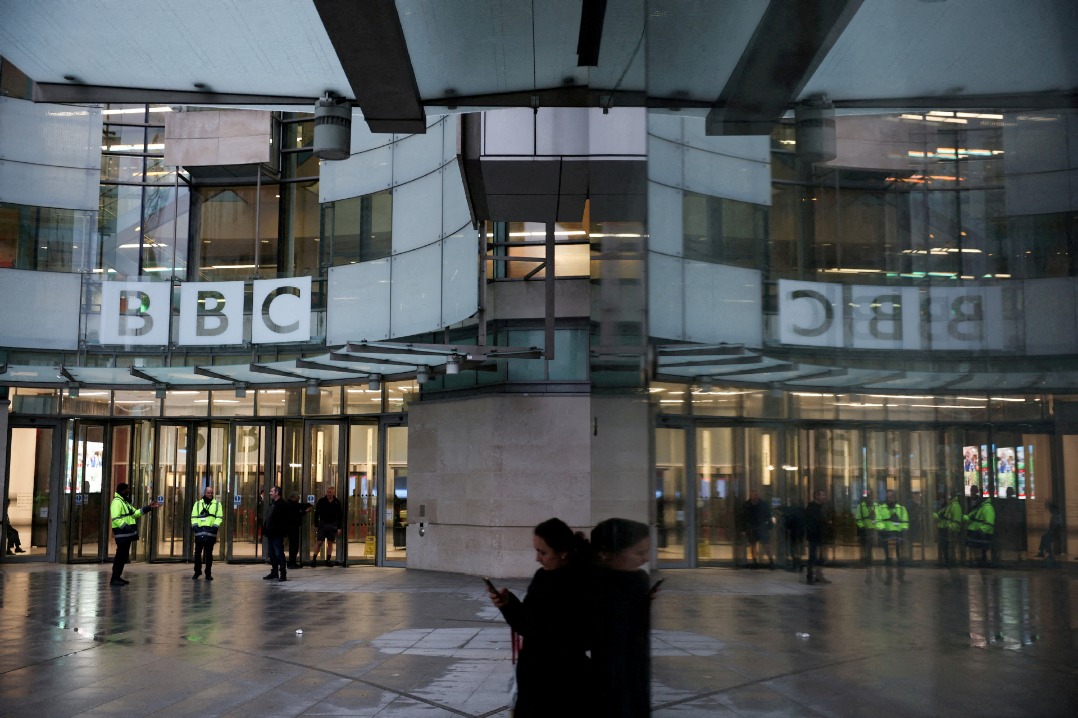UK likely to cut interest rate as tariff impact hits

The United Kingdom's central bank, the Bank of England, or BoE, is expected to cut interest rates later this week to provide some help for consumers and businesses in an economic world adjusting to the impact of the United States government's tariff program.
The BoE's nine-member Monetary Policy Committee, or MPC, will meet on Thursday to consider its options.
A reduction of at least one-quarter of a point from the current level of 4.5 percent looks extremely likely, with Edward Allenby from consultancy Oxford Economics calling a cut this month "a done deal", and adding that Thursday's decision would be the "first opportunity for the MPC to clearly set out how recent developments have shaped its outlook, and what committee members will be focusing on ahead of future interest rate decisions".
Sanjay Raja, an economist at Deutsche Bank, echoed this, telling The Daily Telegraph newspaper that a quarter-point "seems like a certainty at this stage".
"Trade and policy uncertainty remain elevated," he added. "The labor market continues to loosen. Pay growth has slipped. And despite above-target inflation, consumer prices have tracked below the MPC's projections."
While the UK inflation is expected to reach a fresh peak of 3.7 percent this summer amid a rise in the price of energy and food, analysts said fears over the hit to the economy from Trump's tariffs warranted more action to cut borrowing costs, according to The Guardian.
Some people, therefore, argue that a cut of half a point would be better in the current climate.
At the International Monetary Fund's gathering in Washington last month, BoE Governor Andrew Bailey said the US' still-fluid tariff policies would result in a "growth shock" for the UK economy, which before the tariff announcement was expected to grow by 1.6 percent this year, a figure that has since been revised to 1.1 percent.
In February, MPC members said they would to take a "gradual and careful" approach to reducing the cost of borrowing.
But a recent survey of investor feeling published in the Financial Times newspaper showed they expected a cut this month, to be followed by three more before the end of the year, bringing the rate down to 3.5 percent, having been 5.25 percent last summer, a figure that has since been reduced three times.
Kallum Pickering, chief economist at London investment bank Peel Hunt, told The Daily Telegraph steps to "stimulate domestic-oriented services and consumer sectors, as well as housing" could provide an economic uplift.
"Government finances are a mess, but the private sector has the capacity to leverage up and spend," he said. "The problem is that, after years of unusual and repeated shocks, businesses and households find themselves in a state of near-chronic pessimism. Paradoxically, the fear of tough times ahead risks becoming self-fulfilling again if the response by companies and consumers is to tighten up. When people need a big nudge to go out and spend, invest, and borrow, (monetary policy) is the right instrument for the job."
































